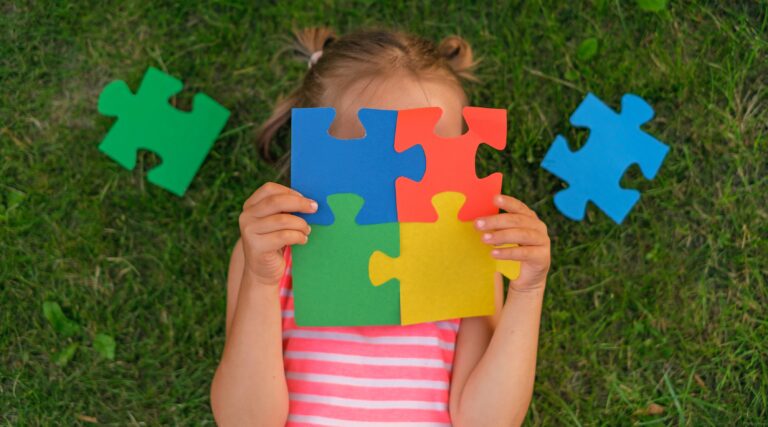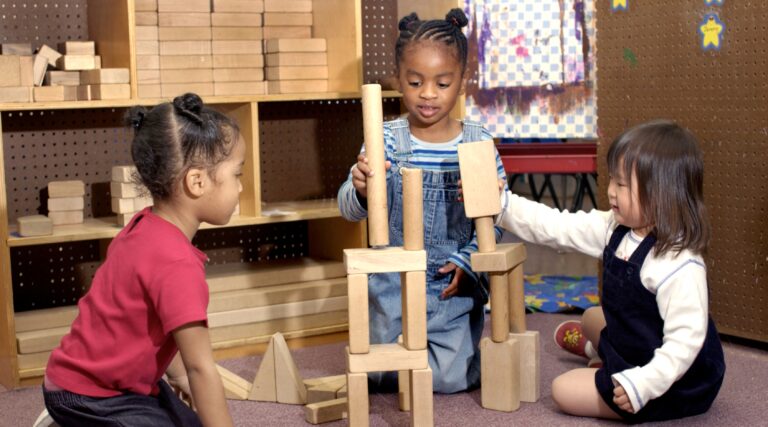How to Develop a Childcare Program That Supports Early Science Learning
Early science learning plays a crucial role in fostering curiosity, critical thinking, and a love for discovery in young children. By integrating science into our childcare program at Whiz Kidz St Albans, educators create an environment where children are encouraged to explore, ask questions, and develop a deeper understanding of the world around them. Developing a childcare program that supports early science learning doesn’t have to be complicated; it can be woven into everyday activities and routines in a way that is both engaging and educational. In this blog post, Whiz Kidz St Albans explores how to develop a childcare program that nurtures early science learning, ensuring that children have a strong foundation in scientific thinking from a young age.
1. Incorporate Inquiry-Based Learning
Inquiry-based learning is at the heart of early science education. This approach encourages children to ask questions, make observations, and explore ideas through hands-on activities.
How to Implement:
- Encourage Curiosity: Foster a sense of curiosity by encouraging children to ask questions about the world around them. Whether it’s why the sky is blue or how plants grow, use their questions as a starting point for exploration and discovery.
- Provide Hands-On Experiences: Set up experiments and activities that allow children to explore scientific concepts in a tactile and engaging way. For example, you might create a simple water table where children can experiment with floating and sinking, or a nature walk where they can observe and collect different types of leaves.
- Facilitate Exploration: Rather than giving answers right away, guide children through the process of discovering answers on their own. Ask open-ended questions like, “What do you think will happen if…?” or “Why do you think this is happening?” to encourage critical thinking and problem-solving.
2. Create a Science-Rich Environment
A science-rich environment is one that stimulates children’s natural curiosity and provides opportunities for scientific exploration throughout the day.
How to Implement:
- Science Corners: Set up dedicated science corners or areas within the childcare space where children can engage in exploration. This could include a nature table with rocks, shells, and plants, or a science lab area with magnifying glasses, measuring tools, and simple experiments.
- Display Science Materials: Keep a variety of science-related materials easily accessible to children. This might include books about animals and nature, collections of natural objects, and tools like microscopes or magnifying glasses. By having these materials on hand, children are more likely to engage with them and explore scientific concepts independently.
- Rotate Themes: Rotate the themes of your science corners to keep children engaged and excited about learning. One month might focus on space and planets, while the next could explore the life cycle of butterflies or the properties of water.
3. Integrate Science into Daily Activities
Science learning doesn’t have to be confined to specific lessons or activities; it can be integrated into everyday routines and experiences.
How to Implement:
- Outdoor Exploration: Use outdoor playtime as an opportunity for science learning. Encourage children to observe the weather, collect leaves or rocks, and explore different textures in nature. Discuss the changes in seasons, the behaviour of animals, and the growth of plants.
- Cooking and Baking: Cooking activities provide a great way to explore scientific concepts like measurement, mixing, and changes in states of matter. For example, making bread can introduce children to the science of yeast and how it causes dough to rise.
- Sensory Play: Sensory play activities, such as playing with water, sand, or playdough, offer opportunities to explore scientific ideas like texture, temperature, and properties of materials. Ask children to describe what they feel, see, and smell, and encourage them to compare different sensory experiences.
4. Use Age-Appropriate Language and Concepts
When introducing scientific concepts to young children, it’s important to use language and ideas that are developmentally appropriate. Simplify complex ideas without losing the essence of the scientific principles you’re teaching.
How to Implement:
- Simplify Explanations: Break down complex scientific concepts into simple, relatable ideas. For example, when talking about gravity, you might explain it as “the force that pulls things down to the ground.”
- Use Analogies and Stories: Analogies and stories can make abstract concepts more understandable for young children. For example, you might compare the parts of a plant to the parts of their body, with roots being like feet that help the plant stand up.
- Incorporate Visuals: Use visuals, such as pictures, diagrams, or videos, to help children understand scientific concepts. Visual aids can make abstract ideas more concrete and easier to grasp.
5. Encourage Collaboration and Group Learning
Science learning is often more meaningful when done collaboratively. Group activities allow children to share ideas, work together on experiments, and learn from one another.
How to Implement:
- Group Experiments: Plan science experiments that require teamwork, such as building a volcano together or planting a small garden. Encourage children to take on different roles, such as measuring ingredients, mixing solutions, or recording observations.
- Science Discussions: Facilitate group discussions where children can share their observations and ideas about a scientific concept. Encourage them to listen to one another and build on each other’s thoughts.
- Peer Teaching: Allow older children or those who have a good grasp of a concept to help explain it to their peers. Peer teaching reinforces the concept for the child explaining it and provides an opportunity for others to learn in a different way.
6. Involve Parents in Science Learning
Parents can play a crucial role in reinforcing science learning at home. By involving parents in the childcare program’s science activities, you can extend the learning beyond the centre.
How to Implement:
- Science Newsletters: Send home regular newsletters or updates about the science activities happening in the centre. Include simple science experiments or activities that parents can do with their children at home.
- Family Science Nights: Organise family science nights or workshops where parents and children can participate in science experiments together. This creates a fun and engaging way for families to explore science concepts and encourages continued learning at home.
- Parent Involvement: Invite parents who have a background in science or a related field to share their knowledge with the children. This could include a demonstration, a talk, or even a hands-on activity that they lead.
7. Evaluate and Reflect on the Program
Regularly evaluating and reflecting on your childcare program’s approach to science learning ensures that it remains effective and engaging for children.
How to Implement:
- Observation: Observe how children engage with science activities and materials. Are they curious? Are they asking questions? Use these observations to make adjustments to your program as needed.
- Feedback: Gather feedback from children, parents, and educators about the science activities. What do they enjoy? What could be improved? Use this feedback to refine and enhance your program.
- Continuous Learning: Stay informed about new developments in early childhood science education. Attend workshops, read relevant literature, and explore new ideas and activities to keep your program fresh and exciting.
Conclusion
Developing a childcare program that supports early science learning is an essential step in fostering curiosity, critical thinking, and a lifelong love of discovery in young children. By incorporating inquiry-based learning, creating a science-rich environment, integrating science into daily activities, and involving parents, you can create a program that not only teaches scientific concepts but also inspires a passion for learning.
At Whiz Kidz St Albans, we are committed to providing a nurturing environment where science learning is an integral part of everyday life. Through hands-on activities, exploration, and collaboration, we help children develop the skills and curiosity they need to understand and appreciate the world around them.
We invite parents and caregivers to join us in supporting early science learning, both at Whiz Kidz St Albans and at home, ensuring that every child has the opportunity to grow into a confident and inquisitive learner.







